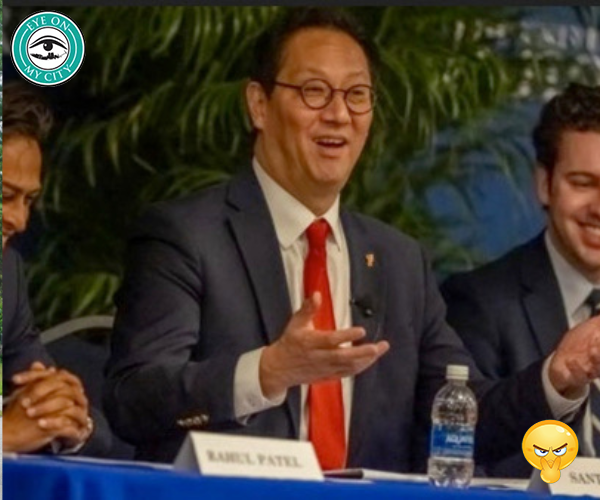My opinion, Jacksonville has a gang problem not only in the streets of Duval County, but also behind the many doors within the local government. Why would I make such a claim aimed toward the very people that we give authority to govern us? These are supposed to be the individuals that are making a sacrifice to perform a civic duty, right?
For decades the people of Duval County have gone about their business raising families and developing careers. At the same time our county government has also gone about its business in growing government, increasing the tax burden, and surrendering federal control over Duval.
The panel of 19 known as the “City Council” began in 1967 to represent the people of a newly created Duval County. Today that panel, along with the Mayor’s office, represents the politically connected, big business, and the federal government.
That panel of 19 has morphed from a body representing the people to one that acts as entrepreneurs with your tax dollars.
When a venture fails they don’t suffer any loss, but rather just go to your wallet in the form of fees and taxes and no one is held accountable for performance. Can you run a business like that? Here are a few examples:
- In 1999 a fraternity asked for funds to restore a building downtown, Genovar’s Hall, and the city council gave them $900,000. In 2009 the city took ownership of the property and the taxpayers got the bill.1 Where did the money go and who was held accountable for this failure?
- In 2003 a group convinced the council that an equestrian center would be a good investment. A decade and $40,000,000 – that’s right $40 Million — later the taxpayers have a facility with not only a negative return on investment, but also an annual upkeep in the hundreds of thousands.1 Would this business stay in business if it was privately-owned? How do we keep putting money into a failing business?
- In 2003 Jax Casual Dining LLC convinced the council that a bistro would be a good investment in the LaVilla neighborhood. Five years later and $2,000,000 gave the taxpayers an empty building and a newly owned city property. How was the $2 Million spent and did anyone keep track of this investment?
- In 2011 EverBank convinced the council to use both Duval tax dollars and a state program called Qualified Target Industry, established to attract NEW business to the state, to move employees from the Southside to Downtown. Not exactly NEW business, but it cost Duval approximately $5,000,000. What was the benefit to Jacksonville for this move?
These examples are just a drop in the bucket and we are bringing more to you in our updates.
City council raising taxes each time they fail at a business venture reminds me of an altercation I had in 2011 with then sitting city council president, Jack Webb. It was campaign season and I was waving a sign stating that Webb had voted many times to raise taxes. He and his wife both confronted me saying the claim was not true. I then pointed out the city ordinances supporting the statements on the sign:
2007-838, 2008-555, 2010-216, 2010-446, 2010-554, and 2010-557
His wife then told me that the information was too complicated for the voters to understand and the sign was misleading. Well here at Eye On Jacksonville we strive to clear up those complications and we think you are smart enough to see the truth. You can check out these ordinances yourself at coj.net.
This is part one in a series informing you of other deals gone bad. There are way too many for one story. Stay tuned. . .
1Bates, Tony, and John Winkler. “November 2011 CTDC Show.” YouTube, Jax Concerned Taxpayer, 11 Dec.2011, www.youtube.com/watch?v=STt4D4vCCJE.
[author] [author_image timthumb=’on’]https://eyeonjacksonville.com/wp-content/uploads/2018/04/Debbie-G.jpg[/author_image] [author_info]Debbie a native of New York became a resident of Jacksonville via the U.S. Navy. After separating from the navy she worked for both Grumman Aerospace and later Northrup-Grumman Aerospace. After almost 20 years in the aviation industry, she went back to college to change professions. Going back to school as an adult that had lived all over the United States and abroad she had experience in culture and circumstance, which created an incongruity with the material being taught. At that point she began questioning the validity of the material and made the observation that to pass her courses she had to agree, at least on paper, with the material. She graduated about the same time as the Wall Street crash of 2008 and jobs were now difficult to find. So, with time on her hand she began to look into other areas to see if the incongruity existed outside of the college curriculum as well. This is where her mission for the truth began. Since then she has worked to get facts out to the public.[/author_info] [/author]





